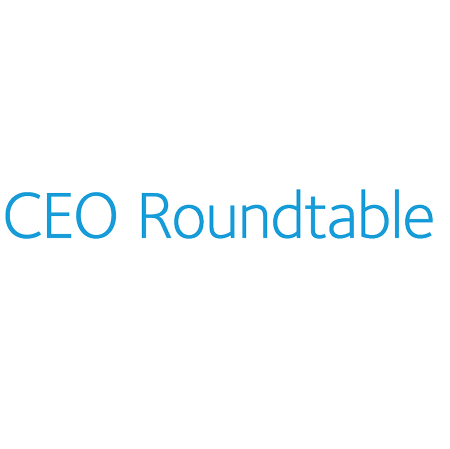February 3, 2014– As corporate leaders, we have a responsibility to represent all of our stakeholders in the most enlightened way possible. This means meaningfully promoting the interests of our employees, customers, consumers, and communities, as well as the needs of our shareholders. It is not an easy job. But it is an important one. We have an obligation to lead our organizations in the most holistic way we can. One of the most effective ways to develop an enlightened perspective is to learn from others. CECP’s Board of Boards CEO Roundtable offers a unique opportunity for learning and growth. I just learned that Forbes has recognized the event as one of the Top 15 Conferences for Meeting Influencers and Innovators, alongside World Economic Forum and Clinton Global Initiative. That was no surprise to me; the forum on establishing a higher ambition at the CEO level for our companies, built around a “doing well by doing good” mindset, is a powerful proposition.
Here are five reasons that I find the Board of Boards CEO Roundtable experience so valuable:
1. There are No “New” Issues. Believe it or not, the issues we face every day are not new to the world. They’ve been faced countless times by other people, and attending this event provides a tremendous opportunity to learn from their experiences. I have always been an impassioned advocate of reading and continuous learning. Going to the Board of Boards CEO Roundtable takes learning a step further. It is an opportunity to sit face-to-face with up to 50 world-class Chairmen and CEOs who are wrestling with the same exact issues as I am—such as employee engagement, trust, customers, brand, and risk. I have a substantial opportunity to develop a much more informed perspective on what’s working, what’s not, and what’s needed going forward. And, while there may not be new issues, there are new ideas. Every year I search for just one new idea – even one idea from a fellow CEO is enormously beneficial.
2. Building a Community. Another benefit of this event is its small size. Attendance is capped at 50 people, which leads to a very intimate, “off-the-record” tone with the proceedings. This fosters a tangible familiarity and sense of kinship with peer Fortune 500 CEOs throughout the course of the discussions. You are building a solid network of leadership peers who you can use as a resource in the future. Maybe you don’t have a problem you’re grappling with today. But you might tomorrow. And, through these discussions you begin to create a community of people who you can call up and ask “how would you handle this?” when tomorrow comes.
One past Board of Boards participant who continues to be a resource for inspired leadership thinking is Indra Nooyi, Chairman and CEO, PepsiCo. Her commitment to “Performance with Purpose” represents a bold proposition at the heart of her mission. I remember her speaking about this at a recent Board of Boards. Nooyi’s clear vision for creating sustainable value by delivering for her consumers, protecting the environment, and investing in employees is deeply aligned with the work that CECP promotes. It is also in step with my own values — I admire how her central leadership idea marries the importance of using your head (performance) and the notion of using your heart (purpose). I appreciate that I can continuously look to her thinking for fresh ideas.
3. Diverse But Like-Minded Leaders. Something that really sets this roundtable apart is that the participants come from wildly different sectors of the economy and backgrounds – from banking, to chemical, to food, to insurance. However, they are united in their efforts to develop a higher purpose for their company. I am looking forward to seeing many CEOs, including Mike Duke, CEO, Wal-Mart, who will talk about lessons learned through his tenure at the company; Dominic Barton, Worldwide Managing Director, McKinsey & Co., who recently shared a thoughtful piece in the Harvard Business Review on long-term capitalism and will discuss the same at the Board of Boards and Barry Salzberg, Global CEO, Deloitte Touche Tohmatsu Limited, who has a lot to teach us about attracting Millennial employees.
What further establishes the powerful nature of this event is that each executive who attends is trying to find ways to “do well by doing good”— or bring business priorities closer to addressing community needs. Every conversation starts from that intention. In my experience, this is very unique compared to other gatherings. Sure, there are countless other issues CEOs have to wrestle with that could fill up hundreds of roundtables. But at this event, we focus exclusively on topics that are connected to the notion of being a force for good. Happily, this focus is aligned with what Paul Newman originally envisioned when he helped found CECP 15 short years ago.
4. CEOs are Citizens Too. Being a CEO can be a lonely job. Few people understand the responsibilities, challenges, and supreme accountability that go along with the position. But, we’re concerned citizens, too. We want to learn, grow, and help build a better world like anyone else. And, while we can learn a lot from the people we work with every day, it helps enormously to learn from fellow CEOs who have “walked a mile in our shoes.” So, we can really delve deep and take this opportunity to ask our peers questions like, “How did you manage x crisis?”, “How did you organize and execute this initiative?”.
At last year’s event, one discussion was becoming highly conceptual. David Stern, the Commissioner of the NBA for the past 30 years, chimed in with some actionable advice that resonated with all of us. He reminded us that we can talk about these issues ad infinitum, but what truly matters is how we contribute and execute our philosophies. At the end of the day, what steps would we take as leaders to bring our ideals to fruition? Stern’s contribution asserted that actions really do speak louder than words. It was a perfectly timed reminder that brought clarity and focus to the room; he energized the group with his expert call-to-action. The lesson sticks with me. That’s why it is crucial to engage with fellow CEOs directly — because they are the ones who are ultimately accountable for cultivating meaningful actions that support their beliefs.
5. Societal Engagement is Just Good Business. Increasingly, evidence is overwhelming that corporations must seek greater harmony between their business agenda and the societal agenda. The 2014 Edelman Trust Barometer found that 84 percent of those surveyed expect businesses to play a role in solving societal issues. Flying in the face of societal expectations just won’t cut it. Whether it’s improving the health profiles of soups, smartly reducing the environmental impact of operations, or reducing the use of child labor in the manufacture of products – it’s a “must-do.” But you should also want to align yourself with societal expectations because there’s tremendous value in doing so.
Every year at CECP, we celebrate countless corporations that are a force for good. One example that springs to mind is the work Duncan Niederauer, CEO, New York Stock Exchange (our host for this year’s event), is leading on reintegrating veterans into the workforce. From training, to job opportunities, to providing a support system, NYSE works to ease the transition from military to civilian life. NYSE understands the unique and valuable skills these individuals bring to the workforce. It’s a win-win for NYSE, employees, and the servicemen and women.
Why wouldn’t you want to do this as a company? It’s good business. Companies (and CEOs) are always seeking to be more relevant, more helpful, and to be good corporate citizens. Societal engagement is crucial to these aspirations. Fortune 500 CEOs: if this is not on your calendar this year, move what you are doing that day and put next year’s date, February 23, 2015, on your calendar today.


